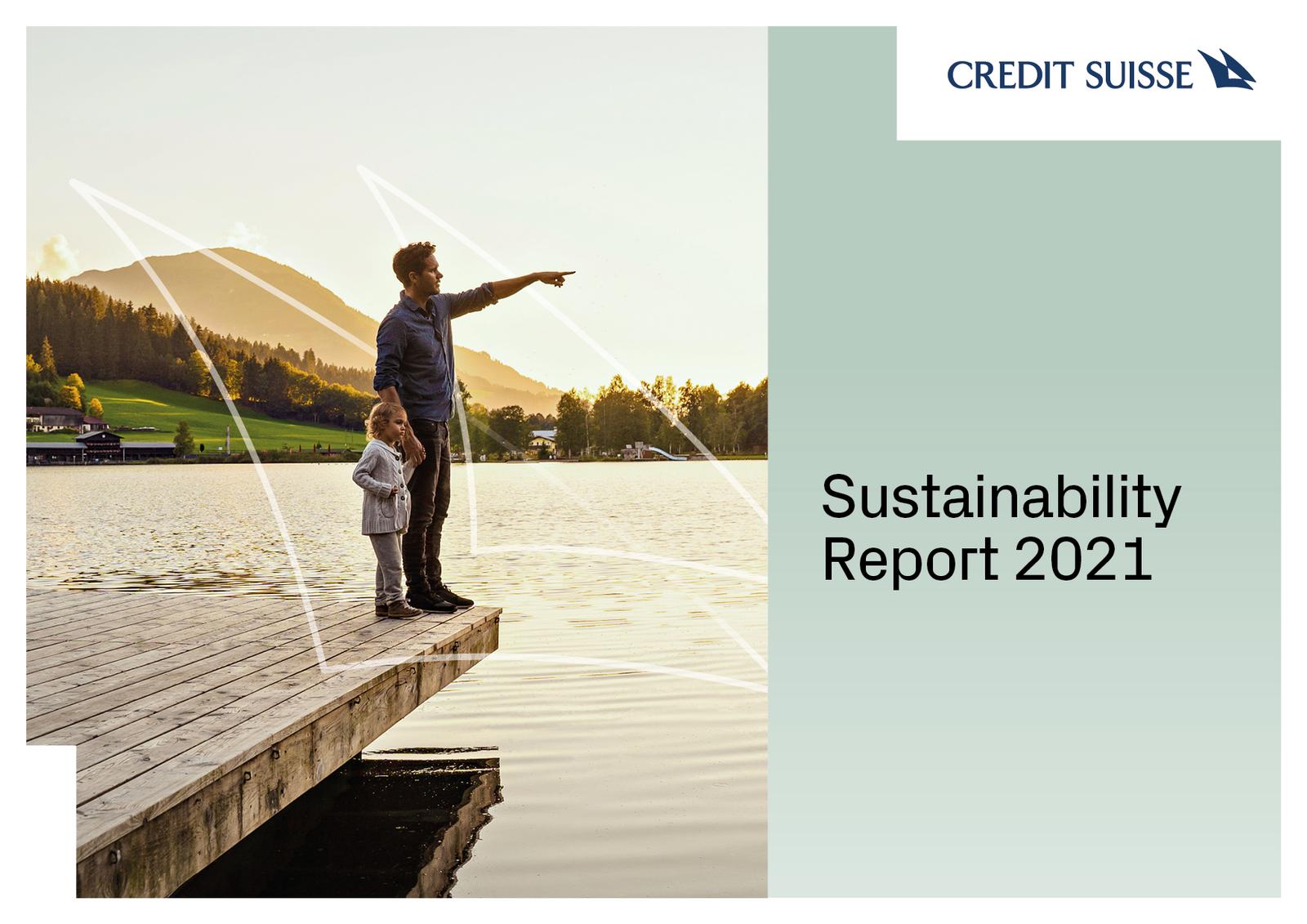What is ESG investing? What are the trends?
Credit Suisse Group AG

Investors have a variety of options for making sustainable investments. The range of sustainable investments enables investors to create a portfolio based on their values, risk tolerance, and financial objectives.
What is ESG investing?
ESG investing is based on a broad and detailed analysis of environmental, social and governance factors to assess the risks and opportunities of an investment beyond traditional financial measures. Effective integration of ESG themes into investment processes depends on meaningful and comparable metrics.
ESG risks and opportunities
Although ESG risks and opportunities are sometimes referred to as "non-financial" or "extra-financial", that is not quite the case. Companies that neglect sustainability risks may be subject to government fines, legal and regulatory penalties or reputational damage.Effective ESG management can be an opportunity for companies; those able to mitigate risks may be more likely to withstand market shocks and outperform peers in the long term. For investors, the value of ESG integration is well documented: 60% of studies reviewed in a 2015 meta-studyi found that ESG had a positive effectii on corporate financial performance, compared to just 10% of studies reviewed indicating the opposite.
Investment outlook: The great transition
The pandemic has sharpened investors' focus on sustainability. By diversifying through themes, investors can better capture the long-term trends that are ushering in change.
By accessing the videos and/or podcasts in this page, you hereby consent to Credit Suisse disclosing your full IP address to YouTube and/or SoundCloud for the purpose of enabling you to view or listen to the content hosted in those platforms. These third party platforms are not operated or monitored by Credit Suisse, and your IP address and any other personal data collected, processed or stored by these third party platforms will be subject to their own privacy policies, and Credit Suisse will not be responsible for their treatment of personal data.
Environmental (E) trends to watch
The outcomes of COP26 (the United Nations climate summit) and COP15 (the two-part UN biodiversity summit) will set the environmental agenda for years to come.While some environmental metrics are now widely reported (like a carbon footprint for climate change), investors struggle to find meaningful metrics by which to compare companies when it comes to biodiversity. The onus is then on companies to demonstrate results.Biodiversity loss and climate change pose material risks for companies and investors across the world – in terms of disrupted supply chains, lower crop yields and greater food price volatility. Investors should seek out companies that are able to manage these risks. Solutions addressing the twin crises of climate change and biodiversity loss could lead to a potentially unprecedented investment opportunity. From climate-smart and regenerative agriculture to alternative proteins and reduced food waste, investing in nature-positive solutions could create USD 10 trillion in new business opportunities while delivering up to 37% of greenhouse gas (GHG) emission reductions by 2030iii.
Social (S) trends to watch
In labor markets, the "gig economy" (ranging from low-skilled, routine work right through to highly-skilled workers; and including creative and digital industries, EdTech and healthcare professionals) provides flexibility and opportunities for marginalized workers. But the lower-skilled work is often low paid, unstable and offers little employment protection. Many women turned to the gig workforce in the pandemic as a result of their overrepresentation in industries hardest hit by the crisis.Legal and regulatory pressures on gig platform companies will continue. Alongside emerging areas such as EdTech, investment opportunities span technologies that stand to benefit from an increasingly flexible working environment: cloud, enterprise Software as a Service (SaaS) and cybersecurity. The gig economy ecosystem includes new mitigation opportunities for investors, such as insurtech products that offer innovative short-term, pay-as-you-go insurance solutions for gig workers. Adjacent technologies include payment networks that increase financial accessibility for the underbanked and pay workers immediately.
Governance (G) trends to watch
As the world emerges from the COVID-19 crisis – and with damages from cybercrime forecast to reach USD 10.5 trillion in 2025iv – digital security will be a high priority as many sectors are transformed by a digital-first approach. Although cybersecurity has been typically regarded as a technological issue (protecting systems, networks, software and data), cyber vulnerabilities fall within the "S" of ESG and are considered an existential business risk that investors should not ignore.Investors should consider a company's cybersecurity preparedness; those that can manage risks are likely to outperform. Investment opportunities will arise through new and incremental business for the cybersecurity ecosystem:
The adoption of a "zero-trust approach", requiring all users inside/outside an organization's network to be authenticated, authorized and continuously validated, as well as embedded hardware authentication and behavioral analytics.
Increasing demand for cloud-based services driving the cloud security market – the fastest growing segmentv.
Vendors focused on assuring cybersecurity hygiene down their hardware and software supply chain and throughout their own operations.
The next generation of entrepreneurial cyber-experienced professionals.
By accessing the videos and/or podcasts in this page, you hereby consent to Credit Suisse disclosing your full IP address to YouTube and/or SoundCloud for the purpose of enabling you to view or listen to the content hosted in those platforms. These third party platforms are not operated or monitored by Credit Suisse, and your IP address and any other personal data collected, processed or stored by these third party platforms will be subject to their own privacy policies, and Credit Suisse will not be responsible for their treatment of personal data.
Source: Credit Suisse news






